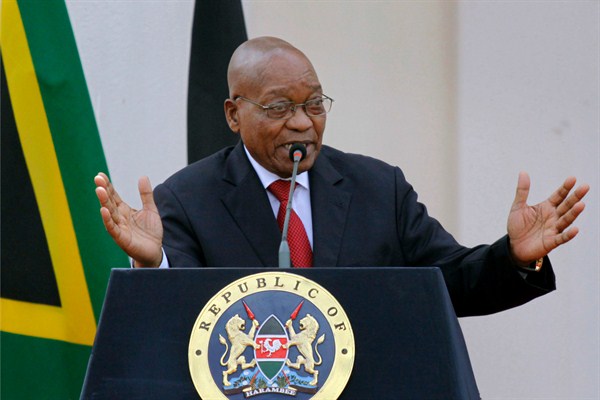Even by the standards of his scandal-ridden and largely disgraced presidency, the past month in South Africa has represented a nadir for Jacob Zuma. He was humiliated twice in the space of three days, first on Oct. 31 when the National Prosecuting Authority dropped spurious charges against Finance Minister Pravin Gordhan, who Zuma wanted to remove. Then, on Nov. 2, the outgoing public protector, Thuli Madonsela, published her report on the scale of so-called state capture by Zuma’s friends and business associates, the Gupta family, after Zuma dropped his legal objections to its release. South Africa’s government watchdog recommended a full-scale judicial inquiry into the affair, which threatens further embarrassment for Zuma.
Earlier this year, South Africa’s highest court ruled unanimously that Zuma violated the constitution when he used some $16 million in public funds to renovate his private house and ignored an earlier demand by the public protector to repay some of those millions. Has this notorious survivor finally run out of time?
If the current clamor for Zuma’s resignation was confined to opposition parties, the liberal South African press and a variety of civil society groups, he might be able to dismiss his critics and continue with what passes for business as usual within his administration. Unfortunately for Zuma, calls for him to stand down are now widespread within the ANC itself, as well as among its partners, the Congress of South African Trade Unions and the South African Communist Party. Over 100 “concerned ANC stalwarts,” including those who went on trial alongside Nelson Mandela under the apartheid regime in 1963 and 1964, have signed a petition lamenting the “self-enrichment, corruption, nepotism and abuse of power” within the ANC leadership and its betrayal of the movement’s values.

